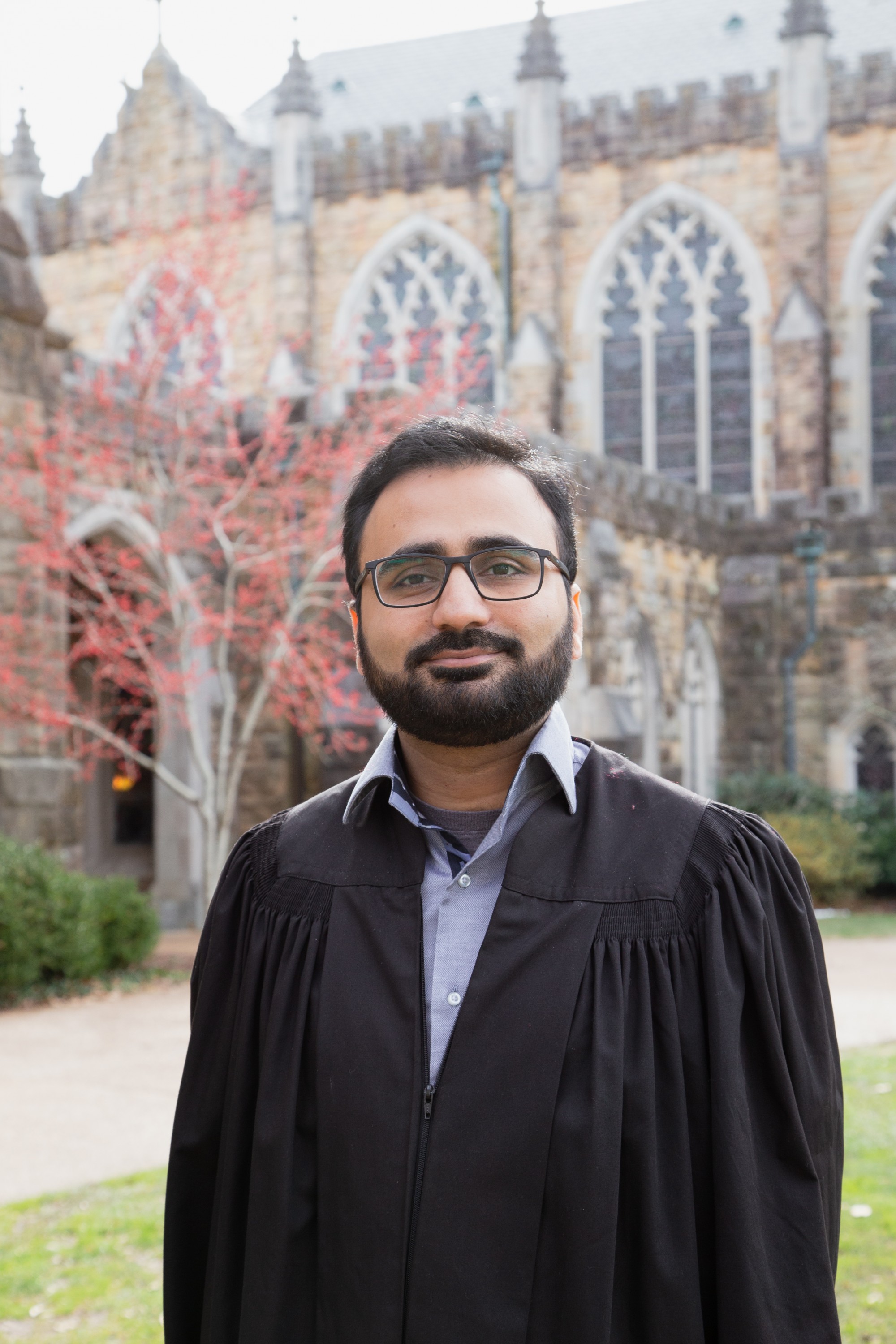
Husnain Ahmad, assistant Professor of Economics
Husnain Ahmad is an applied micro-economist specializing in behavioral economics and game theory. An assistant professor of economics here at Sewanee, Ahmad was enamored by the campus from the start.
“They flew me out here to visit for an interview, and I really liked it,” Ahmad says. “It’s so pretty here. I also got to teach a class and meet some students. It’s a lovely place. It really pulled me in with its charm. Now that I’ve been here for a while, I can honestly say that Sewanee is and continues to be ridiculously welcoming. Sometimes I wonder—what did I do to deserve this? Everyone goes out of their way to help you here.”
Ahmad, originally from Pakistan, is able to practice his faith despite being somewhat isolated on the Mountain.
“I am Muslim, and we drive to Nashville for our Halal meat,” Ahmad says. “For us Friday is the Holy Day and I have to go for prayers to Nashville around lunch time, so that’s a day out of the office for me. Sewanee has always been open to accommodating my faith. I think, Sewanee is very cognizant of the fact that it is an Episcopalian University, but it’s a strength as the University realises that others may from different backgrounds. Sewanee’s ability to accommodate those of diverse backgrounds, allowed me to adjust to the smallness of the town and feel like I’m at home.
Quick to acknowledge his own background, Ahmad outlined his own journey in embracing diversity and inclusion.
“I admit that in Pakistan, my class was the most privileged,” Ahmad explains. “Everyone around me was just like me, and when you’re the privileged class, you start thinking that your worldview is the only one. This was challenged when I came to the US for my PhD, e.g at the mosque in Tucson I saw everyone praying slightly differently. Exposure to diversity, slowly begins to change you and you realise that there are more ways to look at the world and you begin to appreciate differences, rather than resist them. I’d like to believe that this changed my own worldview and hopefully made me a better person.
Being a well-researched trend-observer, Ahmad applies his knowledge of diversity into practical and relevant applications.
“I recently did a project on transgender access to healthcare in Pakistan, and it might help explain the way I think about diversity,” Ahmad says. “To me, a place is diverse not just because it has different people; it’s diverse when those people have equal opportunities to succeed. For example, Pakistan was one of the first countries to recognize transgender individuals. You can even get a passport with your preferred gender. It’s progressive policy, but does that imply that transgender individuals have equal access to opportunities and services? Actually no, as society isn’t always as progressive as its laws. So in the Sewanee context, it’s not just about being able to say 'look we have all these programs to encourage diversity,' we have to follow through and ensure these initiatives allow everyone to thrive at Sewanee. And that’s a slow process, but I think Sewanee is heading in the right direction.”

